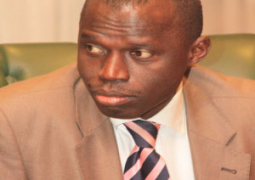WAIFEM is an institute of member states, including The Gambia, Ghana, Liberia, Nigeria and Sierra Leone, who joined forces together in 1996 “principally to build capacity” for improved macroeconomic and financial management in these countries.
One salient point of note is the fact that timely and accurate statistics, especially on BOP, has not been effectively and efficiently put together by our economic and financial planners at the central banks and economic planning ministries of WAIFEM member states.
This is because professional skills to conduct such a task, of putting together timely and accurate BOP statistics, is inadequate, hence the need for the training.
“It is pertinent to note that statistics that is not timely and accurate is not useful,” says the deputy Governor of the Central Bank of The Gambia (CBG).
He added: “The lessons from the recent global financial and economic crises lend support to the fact that countries should meet global standards for the dissemination of data to the public. In essence, professional skills to conduct the task, by itself is not sufficient.”
In such a situation, therefore, relevant training is needed to enhance the skills of our economic and financial planners to meet national and regional economic challenges.
WAIFEM must, therefore, be commended for the strides and efforts it has been making since 1996 to hone the skills of economic and financial planners of the sub-region.
Over the years WAIFEM has been able to execute over 554 courses since inception which have benefited more than 15,173 participants from the sub-region and beyond.
“The institute is earnestly working on developing, on a sustainable basis, expertise in the fields of macroeconomic, debt and financial sector management amongthe staff of central banks, ministries of finance and economic planning and other public sectorbodies with core economic managementresponsibilities,” WAIFEM director general has stated.
Because BOP as other macroeconomic policies, is very strategic in recording the value of acountry’s transactions with the rest of the world in goods, services, income, and transfers, it is pertinent that adequate training is given to those tasked with the responsibility of dealing in it.
We must, therefore, applaud WAIFEM and all its regional and international partners in working very hard to hone the skills of officials of central banks and economic ministries, and by extension the private sector, of its member countries.
“It’s all to do with the training: you can do a lot if you’re properly trained.”
Queen Elizabeth II



